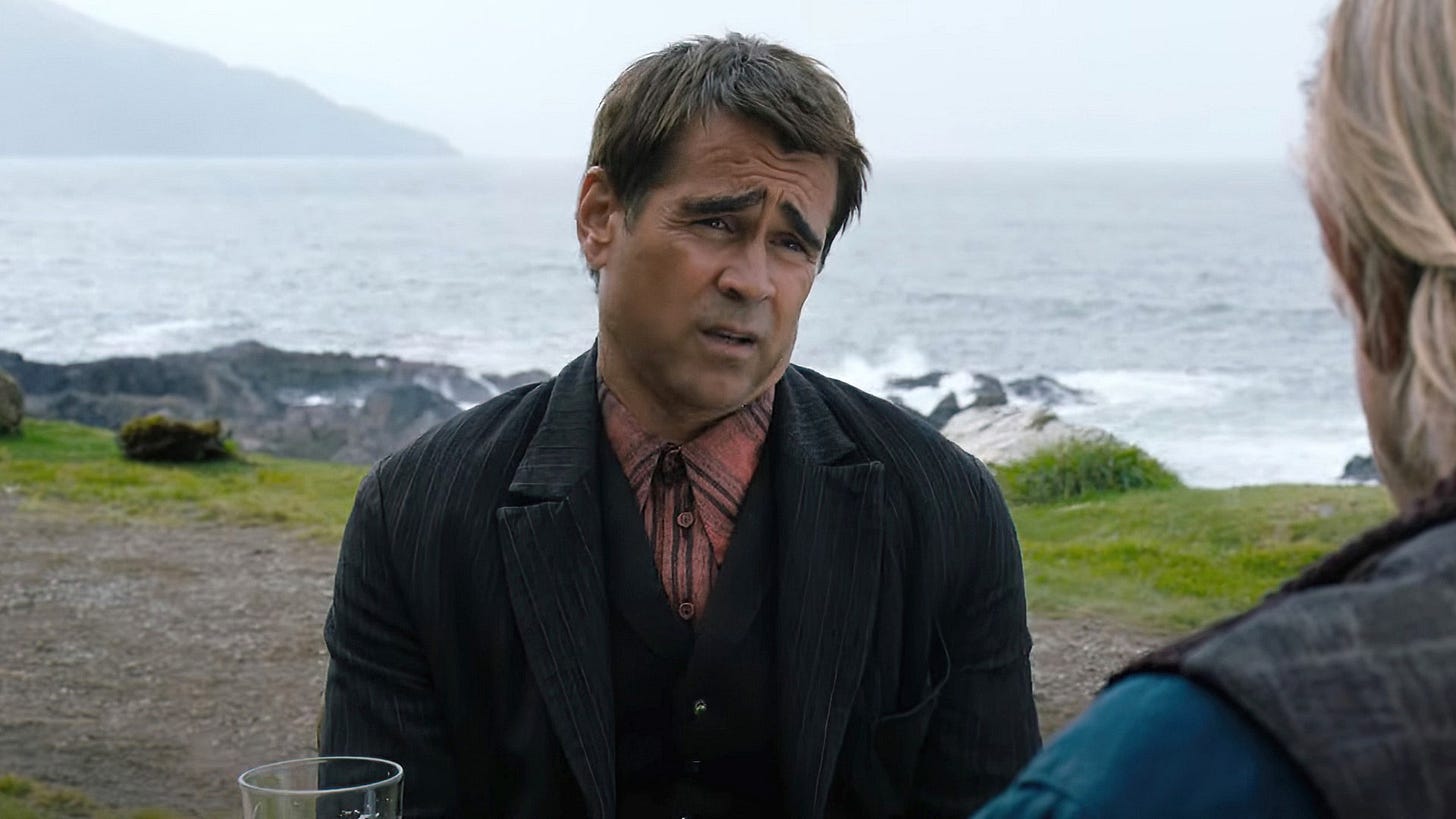
The end of the year brings anticipation of the impending industry awards season, and artists are eager to woo voters with visibly hard work. Trophies often go to the most “transformative” performance, and this year’s crop of actors have done their best to turn into dead famous people, fat people, gay people, and people who closely resemble the filmmaker’s parents. Many of these classic “Oscar-bait” roles are tiresome to me, but one archetype that never gets old is that of the Big Dumb Boy.
The Big Dumb Boy largely conforms to the “himbo” template. He carries a broad smile and a uncomprehending look in his eyes. Finding joy in simple things, he is often blissfully unaware of the larger story going on around him and as such, delightfully sidesteps genre conventions.
Himbo: “A dumb or naive man, who, despite looking like an asshole Chad, is actually sweet, respectful, and kind. Typically large, beefy, and relatively handsome, but friendly. Gentle giants, if you will. Perhaps the best example of a himbo is Kronk, from The Emperor’s New Groove. He is large, strong, and stupid, but extremely kind and respectful to everyone. He is also incredibly innocent and unaware of many events happening around him, as most himbos are.” — via Urban Dictionary
We’ve been blessed in this arena as of late, with actors both established and up-and-coming hitting the gym and plastering on their blankest looks before heading to set. Not me upholding pretty privilege, but this performance is also most effective when the actor is hot! Knowing that they could be coasting on their good looks instead of attempting comedy for the masses makes me want to thank them for their service.
The great thing about the Big Dumb Boy is that he doesn’t have relegated to a small comic relief part, as demonstrated by this year’s preeminent BDB: Colin Farrell, who plays the lead in The Banshees of Inisherin. Pulling off some impressive eyebrow acting, Farrell (who has been a heartthrob longer than I’ve been alive) appears to have already locked down an Oscar nomination for his role as a village simpleton whose best friend suddenly ends their friendship. Playing dumb allows Farrell to tap into a softer side of masculinity while unearthing the primacy of our need for connection.
Banshees (which was very good to me) also features a bonus BDB in the form of Barry Keoghan, who seizes this breakup as an opportunity to ally himself with the one man in town who might be dumber than he is.
The Big Dumb Boy is also a recurring character in the “eat-the-rich” satires dominating screens these days. An easy way of demonstrating the isolating and infantilizing nature of male privilege, no rich people roster is complete without a himbo.
In this year’s Palme D’Or winner Triangle of Sadness, Harris Dickenson (pictured above) plays one half of a model/influencer couple who begins the film unsettled in his relationship, and only becomes more out of his depth on a luxury cruise, then on an uninhabited island once disaster strikes said luxury cruise. Still, Dickenson’s Carl forges ahead through it all, hoping his sex appeal will manifest into a kind of tangible currency or contribution to society.
The recently-released The Menu brings this trope to this foodie space, where Nicholas Hoult dials back Dickenson’s bravado to instead channel the same “harmless” daffy energy that has garnered him stellar reviews in Hulu’s The Great. A midgame twist reveals the consequences of his charming obliviousness, but the guileless charm he displays in the first half almost has you ready to forgive him.
And lest we forget, television has its own cast of Big Dumb Boys for us to enjoy. We need look no further than HBO’s The White Lotus, which takes the sharpest pen yet to its wealthy subjects. When Daphne (Meghann Fahy) describes her husband as “naughty like a little boy,” she’s likely referencing the same archetype as me, but her aim is off. It’s not Cameron — who pops molly and cheats on his wife — who is the resort’s resident Big Dumb Boy, but self-proclaimed “Nice Guy” Albie Di Grassio (Adam DiMarco).
Doe-eyed and Stanford-educated, Albie does the noble work of defending the women of Sicily from his grandfather’s advances, but is woefully incapable of forging a human connection with his would-be vacation hookup. DiMarco himself admits that his character is “missing that X factor. He’s missing that spice.” Many viewers predict that Albie is only a few episodes from a heel turn into either a misogynist or murderer, and I must admit he’s starting to sound a bit like SNL’s guy in a “The Future is Female” tee:
Grammy Time
I don’t like to get involved in the Grammys because they often turn into a stan war for which I am wholly unprepared, but the nominations are out there and Beyoncé leads the pack with 9 nominations. Which reminds me, shouldn’t we have a music video or two from Renaissance by now? It’s been 117 days by my count, man cannot live on a Tiffany commercial alone.
Also, somehow “abcdefu” by GAYLE got nominated for the top “Song of the Year” category. I could not be reached for comment.
Alessandro my frenemy
After 7 years together, Gucci is parting ways with Creative Director Alessandro Michele. He is credited with revitalizing the once-fading brand, but also must answer for his crimes in convincing the world that Harry Styles has a good sense of personal style.
Credit where credit is due, the 2019 Gucci “Guilty” campaign with Lana Del Rey and Jared Leto is one of the most pitch perfect works of branding I’ve ever seen:
Longer reads for your long weekend:
How Danai Gurira Became Our Most Interesting Action Star | GQ
A Japanese American Family, a Native American Tribe and a Bountiful Friendship | New York Times
Be well,
Derek








